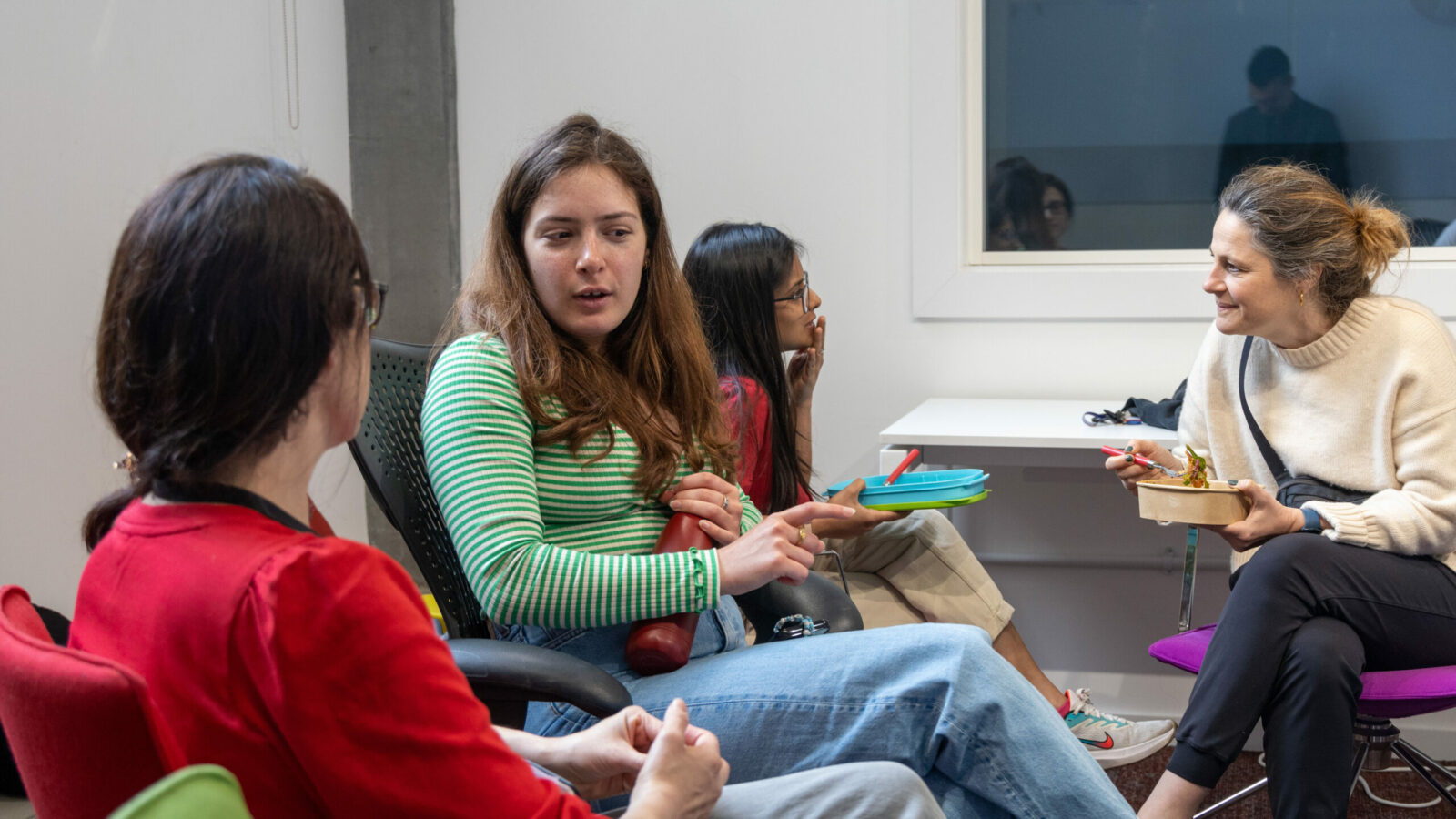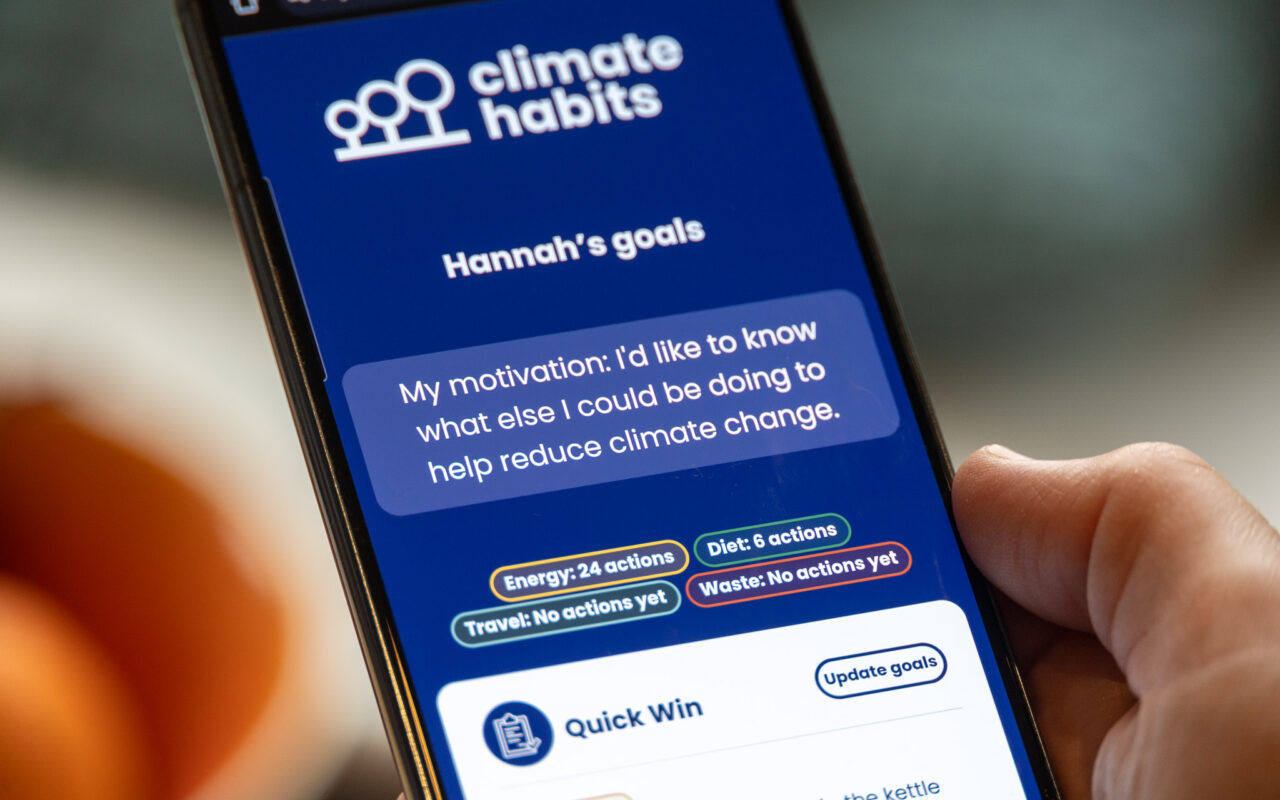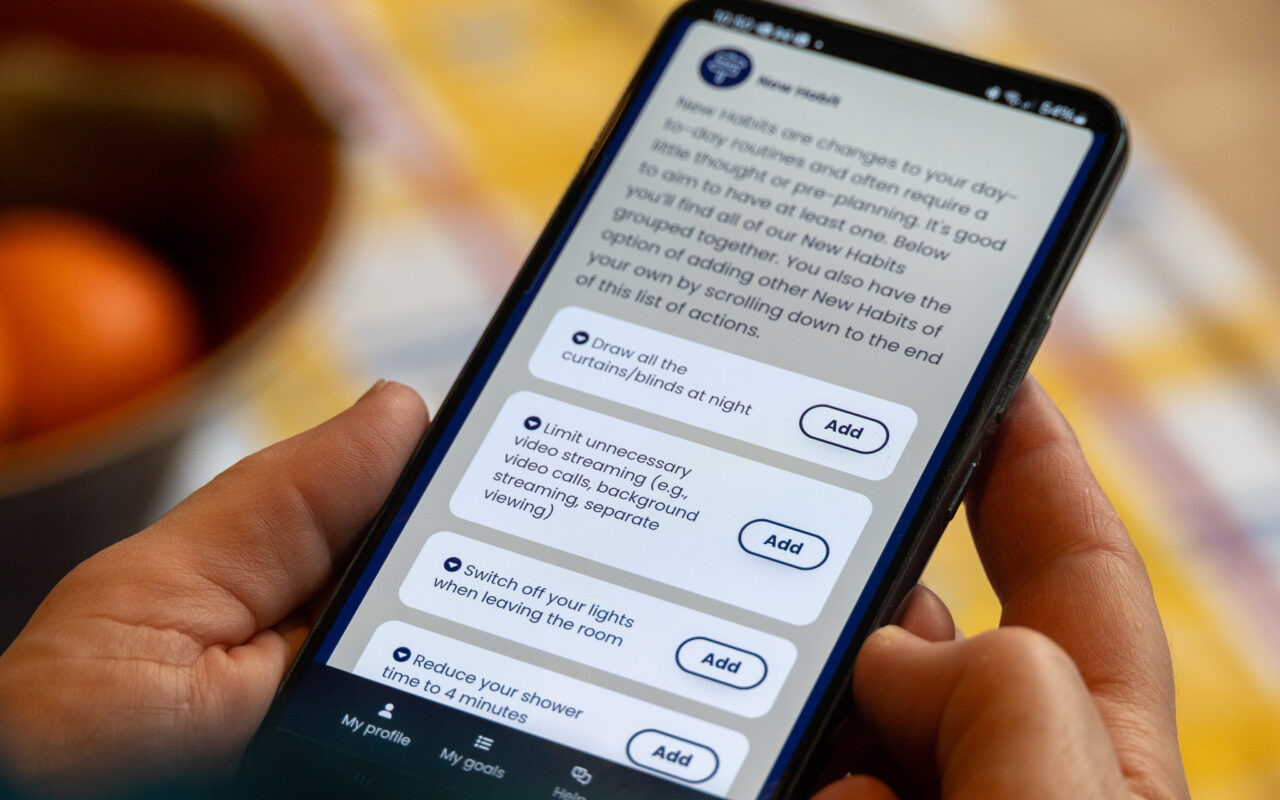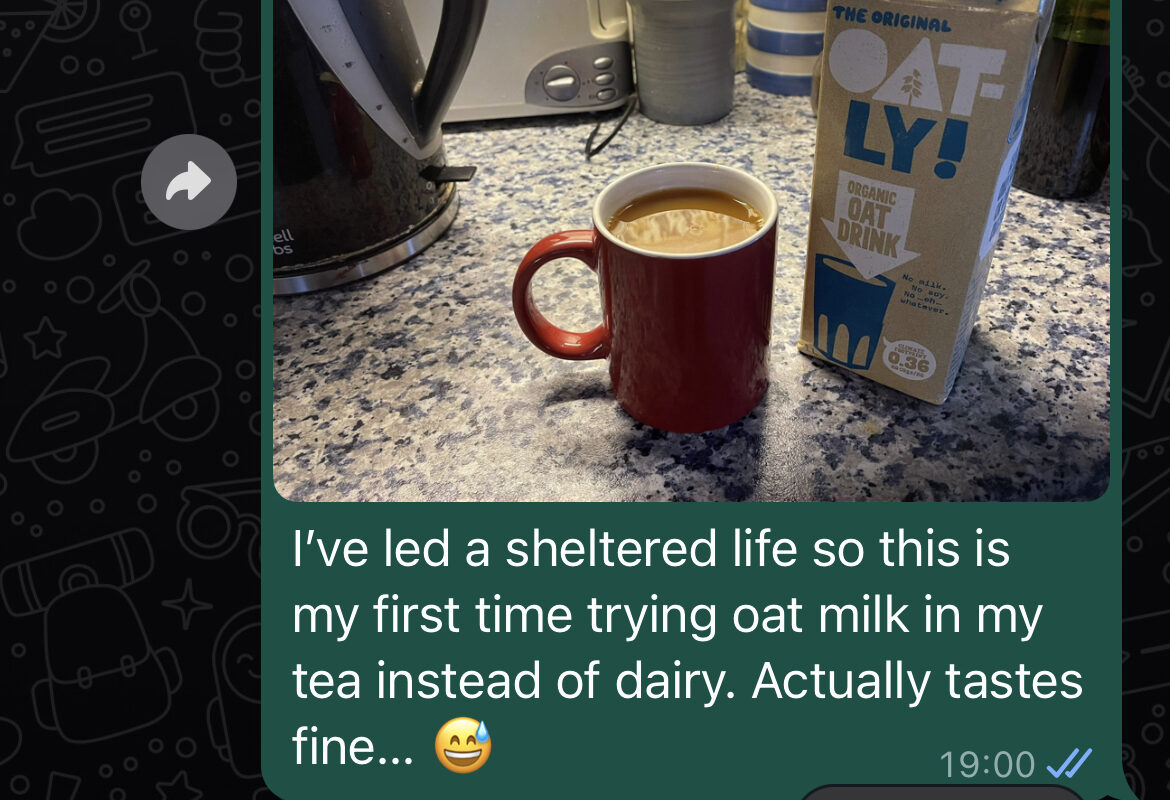Life after Whitehall
Back in 2021 the UK government hosted COP26, the international climate change conference. It was particularly on my radar as I was a Whitehall Communications Director – it got me thinking more in a professional and personal capacity about behaviour change and climate change. It was also at a time when I was considering my next career move, and in particular life outside the Civil Service where I could make a purposeful impact.
Simplifying complex things: Climate Habits’ origins and ideas
The parts of my previous roles that I’d really loved were problem solving around communication challenges. Back in my BEIS days, I’d been involved with Brexit-planning work to show how DEXEU and GOV.UK could bring together content from across all the departments and policy areas where Brexit would affect small business. My thought with taking personal action on climate change was that maybe there was a solution like that – where you bring complicated content together into some sort of accessible web platform.
I started by taking the slightly embarrassing step of interviewing people I knew about their feelings about climate action. It was brilliantly insightful.
- All of them wanted to do more
- Some of them had done some things, others not so much
- Their motivations varied – from wanting to set an example for their kids, to feeling a sense of duty as an industrialised country, not liking waste, having a religious obligation
- There wasn’t a single authoritative source of information
- It was hard to find the time to prioritise climate action
- They quite liked talking about what they had personally done or were planning to do
- That they found climate news scary and campaigners just a bit shouty…(sorry, climate campaigners)
It all added up to it being quite hard to take good intentions and turn things into action – a website wasn’t going to cut it.
At around the same time I was also getting into running…a bit. Well, I had done and kept up the Couch to 5K for a while. It worked for me because it started small, helped me build my confidence and although I didn’t ‘identify as a runner’, I no longer felt embarrassed wearing trainers and moving in public! Although I now realise Jo Whiley is a pretty good runner, she felt normal on the Couch to 5k Podcast and it felt good when she said “Well done” after a run.
Do you see where this is going?…I saw the possibility of combining clear information with behavioural support to make lifestyle changes to help with climate change. And somewhere in that space is the origins of Climate Habits and the start of a journey to develop and iterate the product over the last 12 months.
The Climate/Behaviour-change challenge
Climate change action is not the same as other behavioural interventions – like programmes that help us lose weight, stop smoking or start running. That’s because with climate change there isn’t just one single behaviour we need to change but many (think energy use, diet, travel, waste). However, there is a lot of great learning to be transferred from health programmes where the data about the efficacy of mechanics is more mature. Climate Habits has drawn on learning in the health field for this reason, particularly around the need for in-person accountability for making lifestyle changes. This is why tech is an enabler of our solution, not the whole part of it.
It’s also hard to make the connection between what you do and the climate actually changing, so thinking about how you build in a feeling of shorter-term reward, which isn’t a ‘gamified trick’ has been important. Then for a lot of people of a certain age, it can feel a bit awkward to do something which makes you look ‘eco’. For that reason we’ve tried to avoid the more obvious ‘eco-product’ cues and want Climate Habits to be something everyone can relate to.
Finally, through getting out of my comfort zone, personally testing different concepts – various community-based and coaching programmes – I’ve learned that it can be incredibly difficult to help people to make time – even when we know that over 80% of people are concerned or very concerned about climate change. It’s hard to get it to the top of people’s priority list when it’s set against things like cost of living, childcare issues, a poorly family member or whatever else is going on that day.
Climate Habits: now
So fast-forward to now and we have successfully piloted and are bringing to a wider market Climate Habits. Things have moved on quite a bit since the original idea:
- Climate Habits is based at work, so you are given time in your diary to prioritise reducing your climate impact
- We bring together information about the actions you can take to help with climate change in our app – so you can choose where you want to focus, based on what’s relevant to you
- We provide you with a simple framework, based on behavioural science, for thinking through things you want to achieve
- It’s a time-bound programme, which over 3 weeks only requires 1 hour out of your working week
- It gets you making changes to your lifestyle from day 1 in a way that feels manageable
We find that In a world of hybrid-working, it creates interesting new connections between colleagues, gets people working and supporting each other around a common purpose and is a great platform for further dialogue and engagement around the sometimes-less-visible corporate carbon-reduction plans.
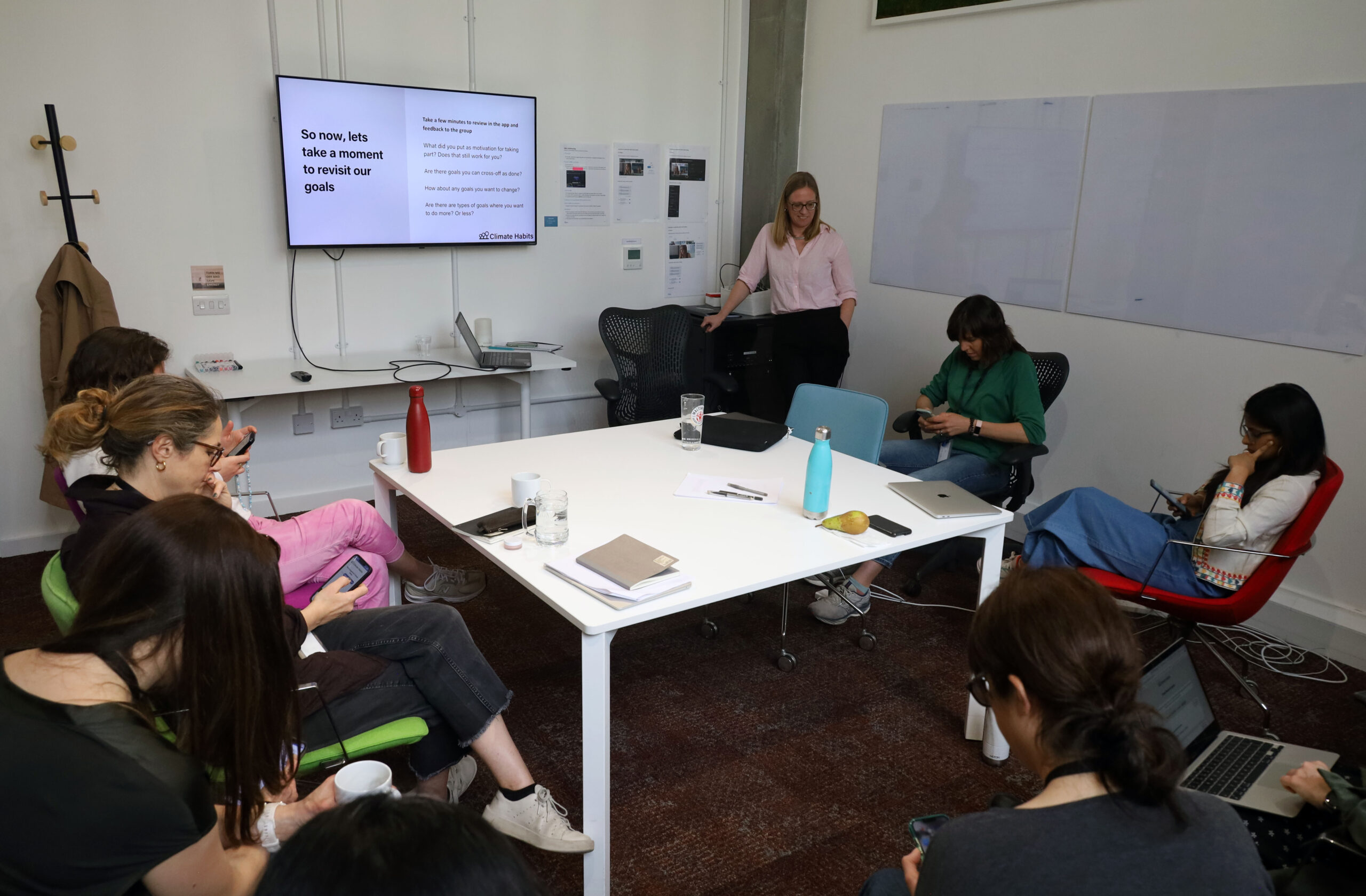
Climate Habits: next
Which brings us to the next step in our journey and to ask whether you could get involved? Perhaps you’d like to join our growing team of expert advisors or partners, or express an interest in being a Climate Habits coach. Perhaps you’d like to be an early client and help us grow and develop. If so, I’d love to hear from you – do drop me a line judith@climatehabits.co.uk


